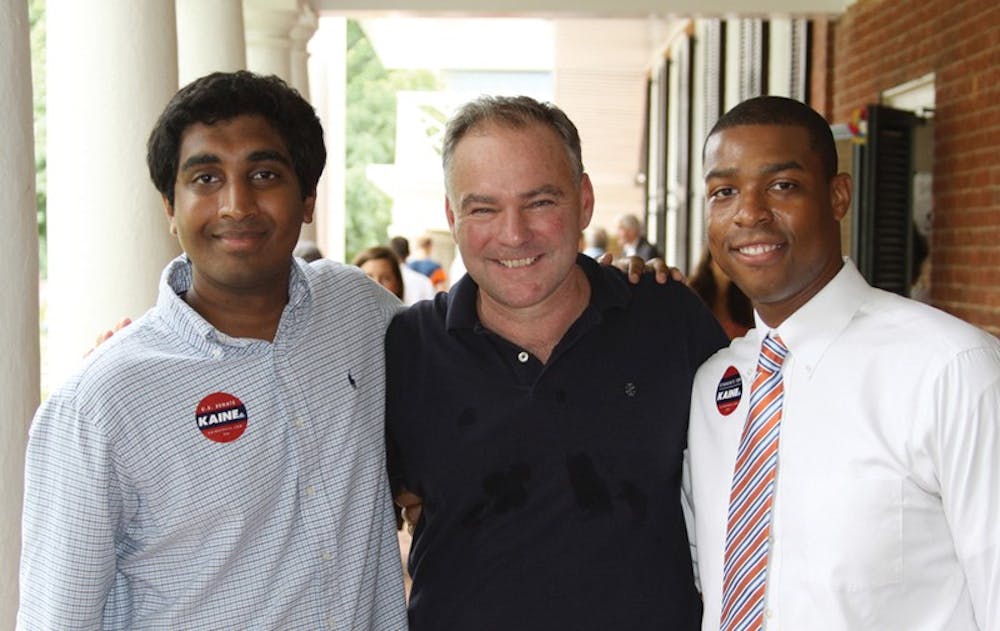During a debate last week with former Sen. George Allen, R-Va., the first in the campaign for Sen. Jim Webb’s seat, former Gov. Tim Kaine, a Democrat, said he would consider a “minimum tax level” if it were proposed by another senator.
Kaine’s statement was a gaffe, though not one that would have much effect on the campaign, University Center for Politics spokesperson Geoff Skelley said in an email.
“This was a gaffe in the sense that he essentially said he was open to raising taxes on everyone,” Skelley said. “But like most gaffes, this one will matter very little in November.”
One minor gaffe in Kaine or Allen’s debate will likely not change the dynamics of the race because of the candidates’ well-known political service, Skelley said.
Lily Adams, a spokesperson for the Kaine campaign, said Kaine meant he would remain open to a broad number of policy proposals to find a balanced approach to tax policy and deficit reduction.
“He has proposed this sort of middle-ground approach,” Adams said. She did not say whether Kaine would vote for or endorse such a proposal.
Kaine’s statement attracted attention partly because of recent discussion about Republican presidential candidate Mitt Romney’s tax history. The former Massachusetts governor paid 14.1 percent of his income in taxes in 2011, recently released tax returns show. This figure is well below the 35 percent at which income more than $250,000 is taxed for the highest earners and is also below the 15 percent at which capital gains, or earnings on investments, are taxed.
Kaine’s tax proposal includes allowing Bush-era tax cuts to expire for annual incomes more than $500,000. President Barack Obama has said Bush-era tax cuts should expire for income more than $250,000.
“That would generate $500 billion in new revenue,” Adams said. “Republicans like George Allen would like to make them all permanent … [the] $500,000 level would be a compromise [and] it would still generate a significant amount of revenue for deficit reduction.”
Kaine’s victory may depend on Obama’s ability to win reelection. “The top of the ticket is very important for both Kaine and Allen,” Skelley said. “Odds are, whoever wins the state at the presidential level will also get a Senate seat out of Virginia.”
The president’s recent jump in the polls has improved Kaine’s chances, Skelley said. Washington Post polls released last week showed Kaine and Obama leading by eight points each in Virginia. The margin of error for both polls was four percentage points.
Kaine’s tax proposal is part of his plan to reduce the national deficit, which is projected at just below $1 trillion for fiscal year 2013. If Congress cannot reach an agreement by the end of the year, automatic federal spending cuts will chop military spending by more than 9 percent. Both Republicans and Democrats have expressed their concern about the impact of such cuts on Pentagon employees and military contractors, many of whom live in Virginia.
“Governor Kaine is obviously very concerned about the looming sequestration cuts,” Adams said.
George Allen supports a flat-tax option, under which individuals could choose to pay a set tax rate instead of their current tax rate, according to the Allen campaign’s website. Allen’s proposals center on “putting a stop to the reckless tax and spend pattern in Washington that is stifling our economic recovery,” according to the website.
The Allen campaign did not respond to requests for comment.







